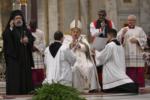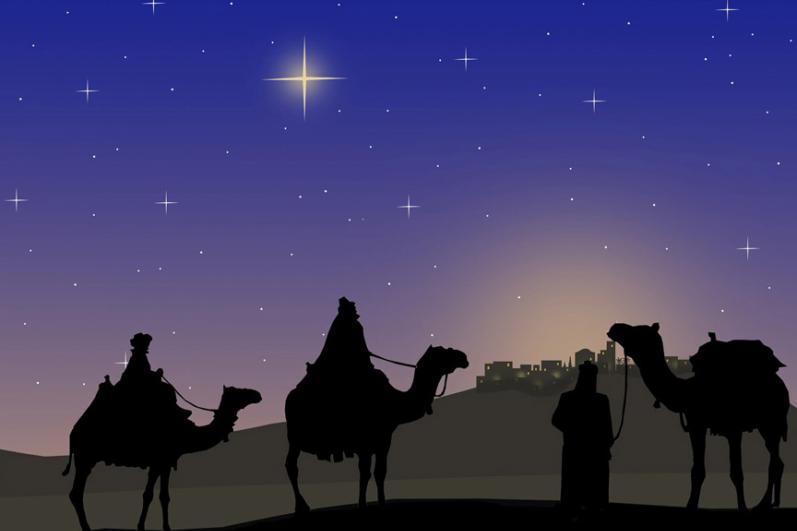A gentle God
I remember once hearing a speaker marveling at the "gentleness of God." My reaction was incredulity. Gentleness? Many in that very room were experiencing great anguish, while around us swirled life's turbulence and trouble.
Of all things one could assert about God, this one seemed the most indefensible. What good could gentleness do, anyway, in a harsh and chaotic world? What is needed is strength and power to assist people whose lives and dilemmas are anything but gentle.
A priest, for example, was told to leave the community house where he resided because he was not a member. There was nothing gentle about the cold note left under his door, informing him he must be out before Christmas, or the terror that gripped his heart since he had no place to go.
Surely firmness, not gentleness, would be the antidote in situations like this. Some kind of power is needed when the inn door is firmly closed in your face, you have no money or friends and your baby needs a place to be born.
Yet I could not forget the speaker's conviction that at the heart of it all is a gentle divine presence. The speaker's own stance, voice and look were gentle in expressing it. Gentleness is a power of its own and can work its way into places where power cannot help.
We can easily overlook this kind of power. Nature's ferocity and fragility, not its gentleness, tend to make the news.
People often seem anything but gentle and one needs to learn to be tough to survive the world. When chaos and turbulence reign, it's difficult even to want God to be gentle, let alone look for it.
And yet, in the midst of the storms, God is gentle. This reality challenges us to look, listen, stop. As does a newborn baby in a manger.
Or in a drain, like the newborn child found by police after a caller tipped them off; gently they plucked her out of the sewage water she lay in and called her back to life. Did she make them gentler, too? Did she have a power that called out a different kind of power in them?
If we miss God's gentleness, we will be fooled by things that are not God. They will convince us they are to be worshipped.
We don't need to pretend away the other things; but we need to learn to see them as they are, and we cannot do so if we do not learn to receive gentleness. The trick is that, in the process, we will discover gentleness at the heart of our own selves, and then nothing will be the same.
Even so the great ones ("Magi"), as Matthew's Gospel recounts, encountered the cunning, cruelty and raw power of the king.
No wonder, when their star led them away from powerful King Herod to a gently wrapped child with his mother, they rejoiced with great joy.
Here was real power. Their hearts were opened, they did homage to the baby and gifts poured forth.
The hidden gem of gentleness does not pretend away the bleakness of the human capacity for selfishness and cruelty.
God's gentleness shines out, all the more bright and beckoning by contrast, like the first little star that breaks the night. It will draw forth our own gentleness, and as with the Magi, our praise and worship of the one true God.
But if you discount this hidden gem, you will be misled. You might end up thinking the Church resides in the cold harsh note of the dismissive community, rather than the weeping heart of the outcast guest.
It was a star that drew the "great ones" from their faraway home, bridging the far-flung reaches of the Earth with an infinitesimally tiny spot in a little town of a small people, to meet a tiny child.
God comes among humanity. And from their lips comes forth praise. Their praise and worship unveil the truth of the gentle child and mother.
Amid the hustle of modern life, it's easy to forget that the night sky has always been crowded and studded with tiny lights, a splendid shifting tapestry of beauty and mystery that has mesmerized humans through the ages.
We can forget to wonder at the wondrous vastness of the stars.
What seems so tiny to us, pinpricks of light easily outshone, really is immense beyond what we can absorb -- unimaginable by us because we are unimaginably tiny.
Praise God for the star that leads to the manger.
Praise God for our littleness, by which we can absorb the greatness of God's gentleness.
MARY MARROCCO IS A COLUMNIST FOR CATHOLIC NEWS SERVICE.



















